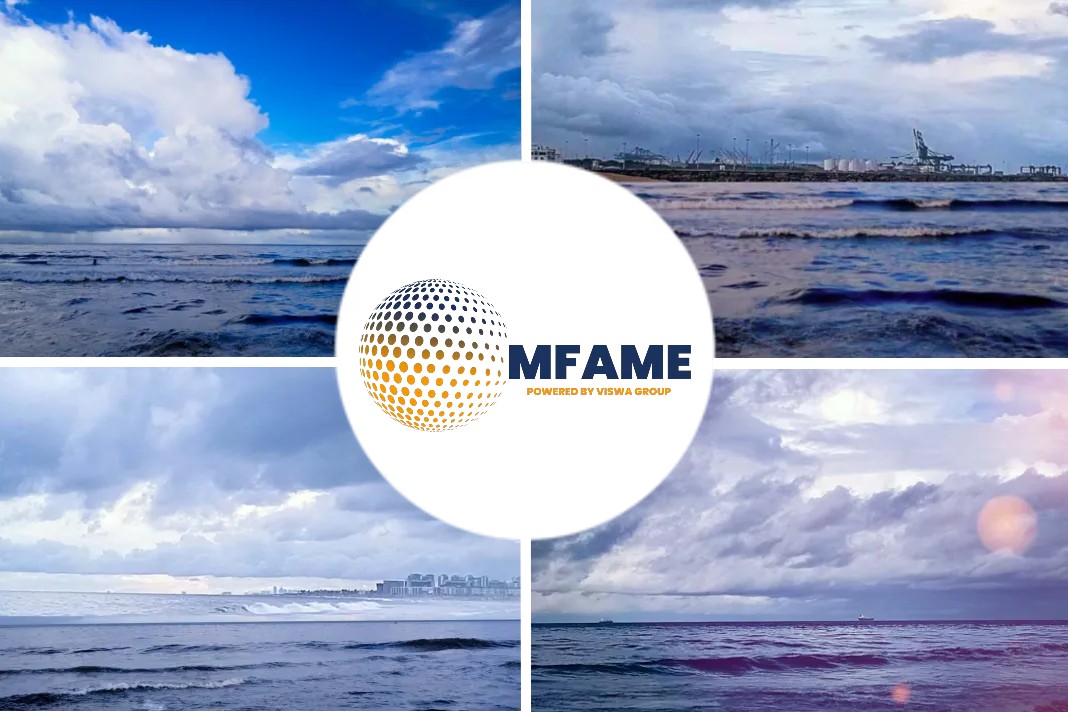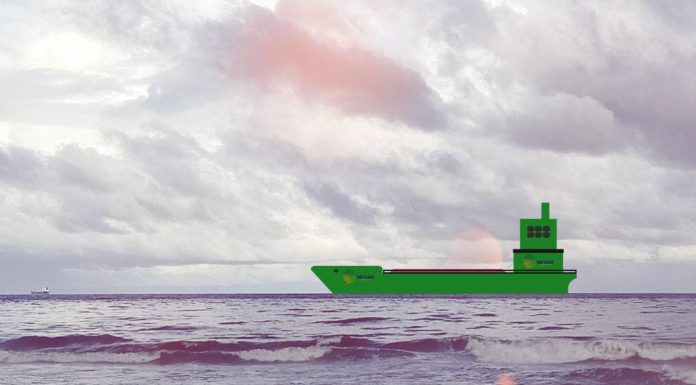About Windward
Windward’s goal “is to make every business, every organization that touches on maritime transportation methods supply chain, be more business-ready, able to improve operations, able to be more resilient and safe and secure,” Omer Primor, Head of Marketing at Windward, tells NoCamels.
A partnership
In late October, Windward announced a partnership with four major shipping companies – Norden, Eastern Pacific Shipping, Capital Ship Management, and Interunity Management Corporation (IMC) – as well as seven Protection and Indemnity (P&I) Clubs, associations of shipowners and charterers, to provide its proprietary AI-powered Predictive Intelligence platform to enable comprehensive industry compliance and optimize transparency among its new partners. The company hailed the agreements as “a paradigm shift towards adopting AI to drive digital transformation in the shipping industry.”
Earlier that same month, the EU’s Maritime Analysis and Operations Centre-Narcotics (MAOC (N)), a law enforcement unit, tapped Windward to provide the technology to help the organization respond to the threat of illicit drug trafficking by maritime and air conveyances. The unit uses Windward’s platform to improve its capabilities to profile and monitor vessels of interest, collaborate globally, and enhance its data and intelligence capabilities.
Benefits of Windward’s intel
Primor tells NoCamels that Windward specializes in predictive intelligence, in which Windward trains models to determine whether vessels, fleets, and companies are at a greater or lower risk compared to others, depending on the use case. By understanding the unique profiles of particular ships, Windward can automatically detect anomalies, trends, and high-risk targets at sea.
“When it comes to illicit activities, we train the model based on hundreds of historical cases of vessels that were actually caught smuggling, or involved in all sorts of illicit activities, drugs, arms,” Primor explains. “Our models actually learn from these past cases what were the indicators that [signaled] this is going to happen, all the small signals that were there before, and then apply this on all vessels every day to find the ones that are most likely to be involved in smuggling now or next week or next month.”
Using big data, Windward can catch the “bad actors” at sea through intelligence analysis which proactively generates leads, identifies networks, and assesses operations in real-time to keep organizations – and the seas – safe. Windward’s AI-powered threat analysis can discern deviations from patterns, uneconomic activities, and high-risk targets.
Windward’s technology also allows companies to reduce sanction evasion risk with automated vessel behavior analysis. As trade sanctions grow, Primor notes how it becomes increasingly difficult for companies in maritime ecosystems to know which vessels are safe to conduct business with.
“We’re applying this to sanctions evasion and being able to look at a ship’s behavior over time and say what’s the likelihood that this vessel is or will be involved in sanctions evasion, what is the risk this ship will be designated, which is a very different way of doing things than classic sanction screening,” Primor says.
Risk selection
Windward’s third use case is risk selection, which can improve efficiency and allow companies to gain deeper insights into the profile of their fleets. It provides risk statistics based on measurements like vessel type, vessel age, fleet size, vessel length, which allows fleets to leverage decision-ready data to maximize underwriting time and identify new opportunities. This risk selection data can improve company loss ratios and let companies easily analyze portfolio performance.
“We basically took the same logic and applied it for marine insurance,” Primor tells NoCamels. “Once we started training the system to see what ships that had accidents in a given year had in common in the year before that, and we’re actually able to train the models to say for each ship, what is the likelihood it’s going to have an accident a year ahead of time.”
For insurers centers, this is very helpful in determining the premiums and determining the level of exposure they want to be having to a fleet or the conditions of the contract.
Applications and partnerships
Windward’s technology is currently being used worldwide by maritime authorities, which can more efficiently control national waters, and law enforcement agencies, which can investigate criminal activity at sea. Additionally, customs and border protection services are using Windward’s technology to prioritize high-risk targets ahead of time, while navies are more effectively enhancing situational awareness and boosting operations.
On the sanctions compliance side, Windward enables marine insurance companies to verify that insured fleets comply with global sanctions. Its technology also benefits trade finance corporations, commodity traders, and bunkering providers, strengthening transaction screening and monitoring. Windward has focused particularly on sanctions around the East China Sea and the Persian Gulf.
“When you need to screen 2,000 trips a day, when you have at any given moment, 1,000 trips setting to your port, then the challenge is of prioritizing what do you invest your human resources, your experts and analysts to weigh in and provide their opinion and cross reference, and how do you prioritize and begin with?” Primor explains. “How do you get a very clear recommendation that you can rely on fast? So for us, it’s all about risk and business readiness.”
In June, Windward announced a partnership with bp Shipping, part of bp plc, one of the world’s largest integrated energy companies, to deliver a broad set of behavioral analytics and insights. Primor notes that Windward will work with bp “on accelerating digitalization starting with the use case of sanctions compliance,” which will establish due diligence adherence to the highest global standards.
Major organizations like the United Nations Security Council, the European Border and Coast Guard Agency, the Special Operations Division, and Société Générale also utilize Windward’s technology.
Much of these findings can be visualized on Windward’s global shipping map, which analyzes the total number of ships on the way, ships by origin country, type of vessel, and voyage duration.
How COVID-19 impacted maritime risk
According to Primor, COVID-19 has had a significant impact on maritime industries and has led to shifts in maritime standards. He notes that crew changes are particularly difficult during the coronavirus, as many countries fear that crews returning from sea could bring the virus to the mainland.
This is a major issue that pretty much every ship owner, manager, ship brokers, trade associations, everybody in the industry now cares about. There have been discussions in the UN about this topic as well.
COVID-19 has contributed to a major surge in maritime security threats like piracy in places like West Africa, Indonesia, Malaysia, and the South China Sea and drug smuggling in Mexico and the Caribbean, Primor indicates. Additionally, trade-based money laundering and sanctions evasion has been particularly prevalent during COVID-19 times.
More positively, COVID-19 has also contributed to a major push towards digitalization especially in the maritime domain, ensuring that businesses have better access to data, can analyze markets on a more advanced level, and can make more effective decisions.
Did you subscribe to our daily newsletter?
It’s Free! Click here to Subscribe!
Source: NoCamels















